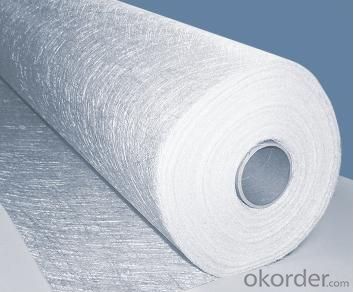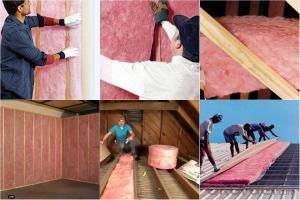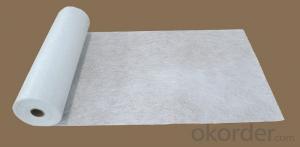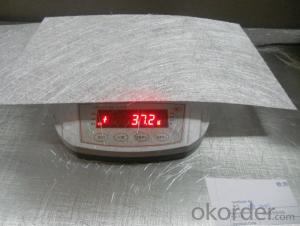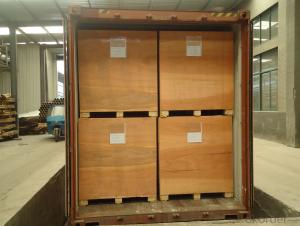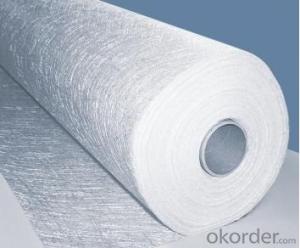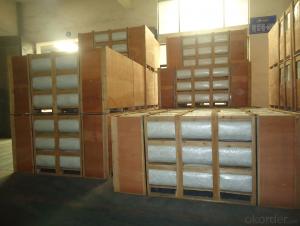Fiberglass Mat Tissue e-glass Chopped Strand Mat 2700mm
- Loading Port:
- Shanghai
- Payment Terms:
- TT or LC
- Min Order Qty:
- -
- Supply Capability:
- 10000MT m²/month
OKorder Service Pledge
OKorder Financial Service
You Might Also Like
1.Breif Introduction
Chopped strand mat with width 2700mm
2.Main Features
With Excellent compatibility with resin,heating resistance,Faster and well wet-out
Chopped strand mats are made of chopped strands of 50mm in length,which are randomly dispersed and bonded together by the polyester binder in powder or emulsion.
Chopped strand mats are mainly used in FRP fields,such as hand lay-up,filament winding and molding process. The typical products are panels,tanks,boats,automotive parts,cooling towers,pipes and so on.
3.Specifications
Bond type: Powder or Emulsion.
Density: 80g/m2-900g/m2.
Bond Content: 100g/m2 (10%-15%). 300g/m2.450g/m2.600g/m2 (4%-6%)
Roll Width: 2700mm.
Normal types :750mm.1040mm.1250mm.1270mm.1450mm.
4.FAQ
Q: Can you supply samples for us?
A: Yes we can send you sample with few quantity
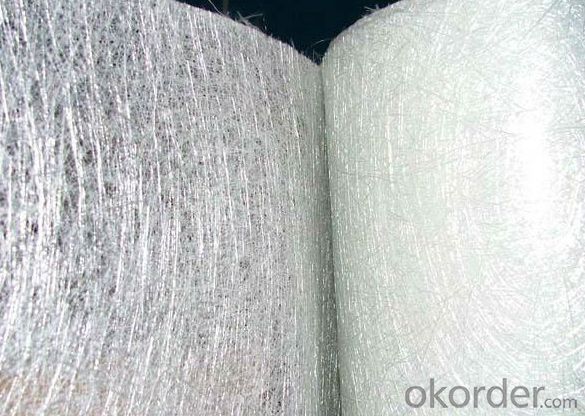
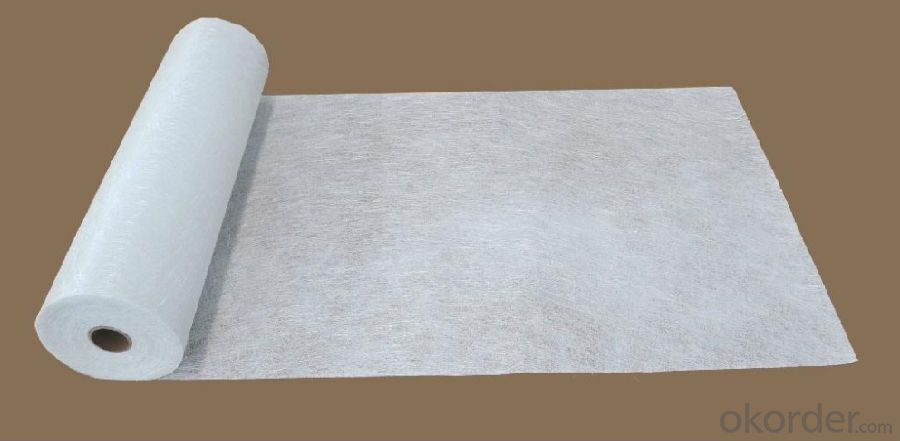
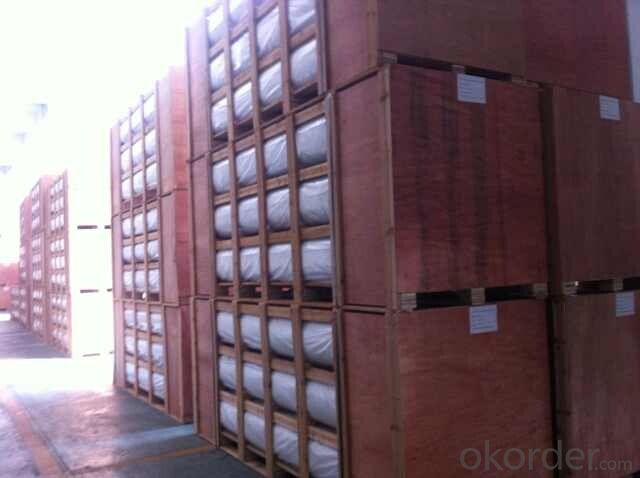
- Q: What is the impact resistance of fiberglass mat tissue at high temperatures?
- The impact resistance of fiberglass mat tissue can vary at high temperatures, depending on factors like its specific composition, the manufacturing process, and the testing conditions. In general, fiberglass mat tissue has good impact resistance at high temperatures due to the inherent strength and durability of fiberglass materials. Fiberglass is recognized for its excellent mechanical properties, including high tensile strength and stiffness, which contribute to its overall impact resistance. Typically, fiberglass mat tissue maintains its structural integrity and can withstand impact without cracking or breaking at high temperatures. This is because the fiberglass fibers are designed to endure high temperatures and do not easily soften or deform. However, it's worth noting that the impact resistance of fiberglass mat tissue can be affected by other factors like the presence of additives or binders used during manufacturing. Some additives or binders may decrease impact resistance or make the tissue more prone to damage at high temperatures. To determine the specific impact resistance of a particular fiberglass mat tissue at high temperatures, it's crucial to refer to the manufacturer's specifications or conduct specific tests under controlled conditions. These tests can provide more precise information on how the material will perform under impact at elevated temperatures.
- Q: What is the dimensional stability of fiberglass mat tissue?
- The ability of fiberglass mat tissue to maintain its size and shape under different conditions is referred to as its dimensional stability. Fiberglass mat tissue is well-known for its outstanding dimensional stability, which makes it highly resistant to shrinking, expanding, or warping. This stability is achieved through the manufacturing process, where glass fibers are bonded together using a binder material. Not only does this binder ensure the integrity of the mat tissue, but it also helps it maintain its dimensional stability over time. Moreover, the exceptional dimensional stability of fiberglass mat tissue is further enhanced by its inherent properties, such as its high strength and stiffness. These characteristics have made fiberglass mat tissue a popular choice in various industries, including construction, automotive, and aerospace, where maintaining consistent dimensions is essential for optimal performance and durability.
- Q: Is fiberglass mat tissue suitable for insulation in cold storage facilities?
- Cold storage facilities can benefit from the use of fiberglass mat tissue as an insulation material. Fiberglass possesses remarkable thermal insulation properties, effectively blocking heat transfer and maintaining low temperatures in the storage area. Moreover, fiberglass is moisture-resistant and does not absorb water, making it ideal for environments prone to condensation and moisture. The installation of fiberglass mat tissue is simple and offers a cost-effective solution for insulating the walls, ceilings, and floors of cold storage facilities. Ultimately, the use of fiberglass mat tissue plays a vital role in preserving the desired cold temperatures and preventing any thermal leaks in these facilities.
- Q: Can fiberglass mat tissue be used for insulating radiant floors?
- Yes, fiberglass mat tissue can be used for insulating radiant floors. It is an effective insulation material that helps to minimize heat loss and improve energy efficiency in radiant floor heating systems.
- Q: What are the different quality standards for fiberglass mat tissue?
- There are several quality standards for fiberglass mat tissue, including weight per unit area, tensile strength, elongation, tear resistance, and moisture content. These standards ensure that the fiberglass mat tissue meets certain performance criteria and can be used effectively in various applications such as roofing, insulation, and composite materials.
- Q: What are the different types of fiberglass mat tissue available?
- There are various types of fiberglass mat tissue available, including chopped strand mat (CSM), continuous filament mat (CFM), and surface veil mat. Each type has different characteristics and is used for specific applications in industries such as construction, automotive, and marine. CSM is commonly used for general purpose applications, CFM provides higher strength and stiffness, and surface veil mat is used for surface finishing and improving the aesthetics of fiberglass products.
- Q: Does fiberglass mat tissue provide good fire protection?
- No, fiberglass mat tissue does not provide good fire protection.
- Q: Is fiberglass mat tissue resistant to solvents?
- Indeed, solvents are unable to penetrate fiberglass mat tissue due to its inherent resistance. The tissue is crafted from interwoven fiberglass fibers that are subsequently enveloped in a binding agent. This agent serves as a shield, rendering the tissue impervious to solvents. Solvents are commonly employed to dissolve, dilute, or purify substances, but they possess the potential to corrode or harm specific materials. Remarkably, fiberglass mat tissue is meticulously engineered to endure the detrimental impact of solvents, rendering it an exceedingly dependable option for situations that necessitate constant exposure to solvents.
- Q: Can fiberglass mat tissue be used for insulating ductwork?
- Yes, fiberglass mat tissue can be used for insulating ductwork.
- Q: Is fiberglass mat tissue resistant to chemicals?
- Yes, fiberglass mat tissue is generally resistant to chemicals. The composition of fiberglass mat tissue, which consists of fine glass fibers bonded together with a resin, provides it with excellent chemical resistance properties. This resistance allows the fiberglass mat tissue to withstand exposure to a wide range of chemicals without deteriorating or losing its structural integrity. However, it is important to note that the specific chemical resistance of fiberglass mat tissue may vary depending on the type and concentration of the chemical it comes into contact with. Therefore, it is always advisable to consult the manufacturer's guidelines or conduct appropriate testing to ensure compatibility with specific chemicals.
Send your message to us
Fiberglass Mat Tissue e-glass Chopped Strand Mat 2700mm
- Loading Port:
- Shanghai
- Payment Terms:
- TT or LC
- Min Order Qty:
- -
- Supply Capability:
- 10000MT m²/month
OKorder Service Pledge
OKorder Financial Service
Similar products
Hot products
Hot Searches
Related keywords



